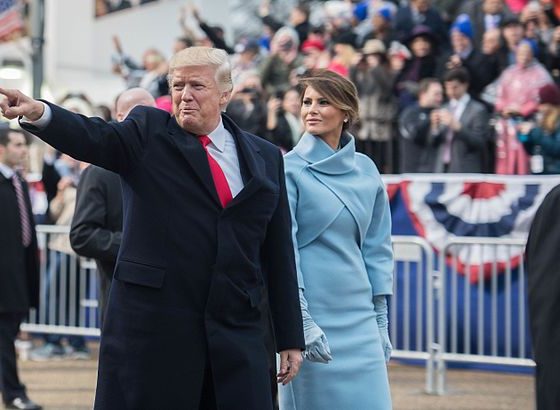Twelve jurors in the Democratic stronghold of Manhattan may have convicted President-elect Donald Trump earlier this year, but a jury of nearly 72 million Americans voted Nov. 5 to send him back to the White House.
With the presidency secured, Trump’s two federal cases will be dropped and his state cases most likely will be too, though there’s a possibility ambitious local prosecutors could prolong the battle. Yet Trump’s risk of ending up behind bars has evaporated, even as a sentencing date remains on the calendar later this month.
“I highly doubt Judge Juan Merchan was going to sentence Trump to a period of incarceration regardless of the outcome of the election, but Trump winning makes it logistically impossible and a certainty that he won’t receive any time,” former federal prosecutor Neama Rahmani told the Daily Caller News Foundation.
Merchan, who set a Nov. 26 sentencing date for the case brought by Democratic Manhattan District Attorney Alvin Bragg, is still weighing Trump’s motion to dismiss the case based on presidential immunity.
Even if he issues a prison sentence, there’s no way Trump could serve time because “a state cannot interfere with a President’s ability to do his job, which he could not do from prison, and the Secret Service would not be able to guarantee his safety,” John Malcolm, vice president for the Heritage Foundation’s Institute for Constitutional Government and former deputy assistant attorney general in the DOJ’s Criminal Division, told the DCNF.
Trump’s sentencing was initially scheduled for just days before the Republican National Convention in July. The Supreme Court’s presidential immunity ruling prompted months of delays.
Rahmani said Merchan doesn’t “have the stomach to imprison a former president or president-elect,” pointing to his decision not to confine Trump after he found him in violation of the gag order ten times.
“Nor would it be appropriate for a defendant with no criminal history convicted of Class E felonies (the least serious under New York law),” Rahmani said.
Jack Smith, You’re Fired
After inauguration, it’s game over for special counsel Jack Smith, who Trump has said he will fire “within two seconds” of taking office.
The Department of Justice is already considering how to “wind down” Trump’s federal election interference case and classified documents case, realizing there is no chance of holding a trial in either one, NBC News reported Wednesday afternoon. The special counsel’s office declined to provide further comment to the DCNF.
DOJ policy states that the “indictment or criminal prosecution of a sitting President would unconstitutionally undermine the capacity of the executive branch to perform its constitutionally assigned functions.”
Smith aggressively pursued the case in the final weeks before the election, pushing Judge Tanya Chutkan to allow him to publicly file a motion detailing his evidence against Trump. Trump’s attorneys repeatedly slammed Smith’s moves as election interference.
Smith also persisted after the federal judge overseeing the classified documents case found his appointment unconstitutional, appealing her ruling to the 11th Circuit. Even after Trump narrowly avoided an assassination attempt in July, the DOJ continued pursuing the cases.
Still, nearly two years of litigation initiated by Smith and others — which spawned four criminal indictments, civil lawsuits, a mug shot and a drawn out criminal trial resulting in a felony conviction — did not prevent Trump from becoming the 47th president of the United States.
“Smith does arguably have the authority to try to continue to prosecute until the inauguration, but that could cause President Biden and the Dems more criticism than benefit since there’s no way they could actually get to trial before then,” former federal prosecutor Andrew Cherkasky told the DCNF.
‘Cannot Be Pursued’
Trump’s other state-level cases likely will disappear along with the federal indictments, legal experts told the DCNF. “Now that Trump has won, his criminal problems go away,” Rahmani said. “It’s well established that a sitting president can’t be prosecuted.”
Cherkasky noted the Supreme Court “has essentially ruled that state legal proceedings cannot be pursued while a person is President, so that would effectively pause those cases, but not end them entirely.”
Fulton County District Attorney Fani Willis’ case against Trump is expected to collapse.
Willis, who won reelection Tuesday night against her Republican challenger, still faces disqualification as a state appeals court weighs defendants’ arguments. Her relationship with the special prosecutor she appointed, Nathan Wade, derailed the case in January.
Willis’ office did not immediately respond to the DCNF’s question about her plans.
“At the very least, if the case is not dismissed, it will be held in abeyance until Trump completes his term, although it might proceed against the other defendants,” Malcolm said.
Rahmani suggested waiting four years to continue the prosecution “would not be an option” because of Trump’s right to a speedy trial.
As for Trump’s civil fraud case b_rought by Democratic New York Attorney General Letitia James, judges who heard his appeal in September appeared inclined to reverse the over $450 million judgement against him.
“I think there are good odds that the appellate court will reverse some or all of that case which would return the case back down to the trial court. If that happens, there will not be enough time to retry that case before inauguration,” Cherkasky said. “Trump’s civil sexual misconduct case is also on appeal and faces many strong appellate issues. There is no reasonable likelihood that there will be final resolution of that case ahead of inauguration.”
Responding to the election results, James said Wednesday her office is “prepared to fight back once again” using the “rule of law.”
Cherkasky argued Trump is “not completely out of the woods yet.”
“A traditional view of the DOJ’s policies and prior SCOTUS rulings suggest none of these cases can proceed once Trump is in office, however, any of the aggressive opposing attorneys involved could try to press their case past inauguration which would require the Supreme Court to draw a more definitive line in the sand about what types of litigation are permitted against a sitting president,” he said.
Featured Image Credit: U.S. Army photo by Pvt. Gabriel Silva
















